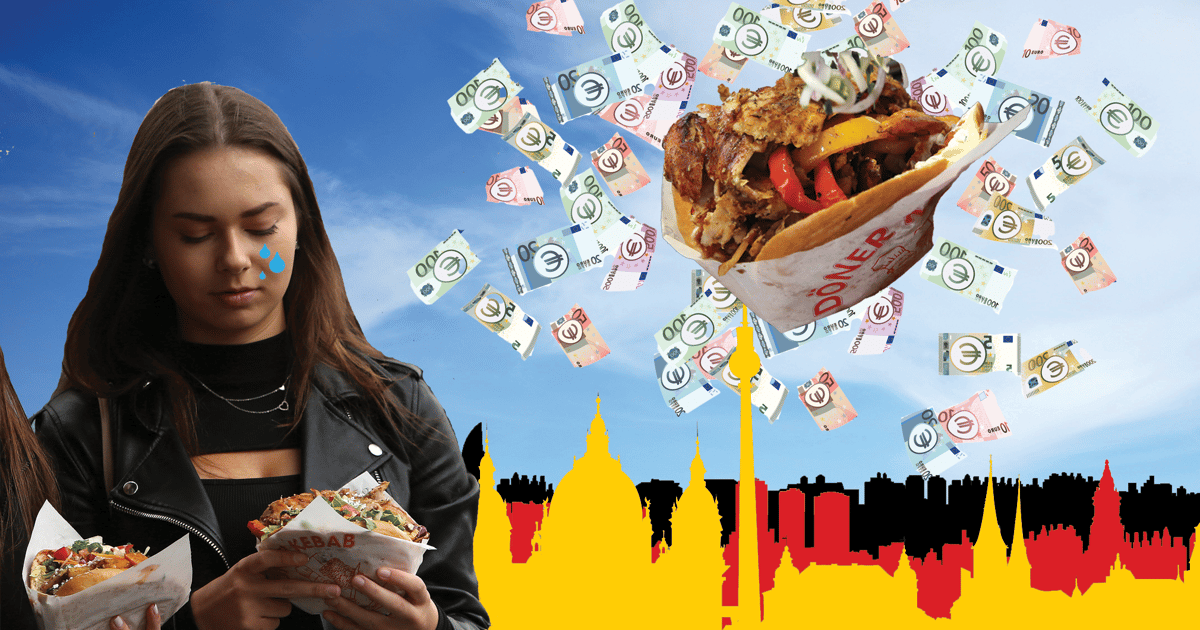“I can still remember when doner kebabs were sold for €3.50,” reminisced one teenager amid calls for a price brake to stop rising kebab costs.
The German capital is the birthplace of that ubiquitous European fast food, the doner kebab, and it shows.
Kebab shops line streets of many German cities, particularly in Berlin, and the scent of roasting, skewered meat is never far off.
Some two-million doner kebabs — meat wrapped in bread, topped with sauces and vegetables — are consumed a day in Germany, according to an industry association, quite a lot for a country of 83 million people. And the doner kebab has even supplanted the old stalwart, the currywurst — fried veal sausage topped with ketchup and curry powder — as the most popular fast-food dish in the country, according to a 2022 survey.



This is the best summary I could come up with:
Some two-million doner kebabs — meat wrapped in bread, topped with sauces and vegetables — are consumed a day in Germany, according to an industry association, quite a lot for a country of 83 million people.
And the doner kebab has even supplanted the old stalwart, the currywurst — fried veal sausage topped with ketchup and curry powder — as the most popular fast-food dish in the country, according to a 2022 survey.
It’s become such an issue, that some politicians belonging to the far-left Die Linke, or the Left party, are calling for a “price brake” on the doner kebab.
“When young people demand: ‘Olaf, make the kebab cheaper,’ this is not an internet joke, but a serious call for help!” wrote Kathi Gebel, a member of the Left party’s executive committee, in a manifesto on the subject.
The calls for a price brake have become so frequent, that German Chancellor Olaf Scholz felt obliged to respond on TikTok.
Economists also warn that a doner price brake could also lead to a shortage of the kebabs — an unintended effect that could potentially create more unrest given the importance of the street food in German society.
The original article contains 765 words, the summary contains 194 words. Saved 75%. I’m a bot and I’m open source!